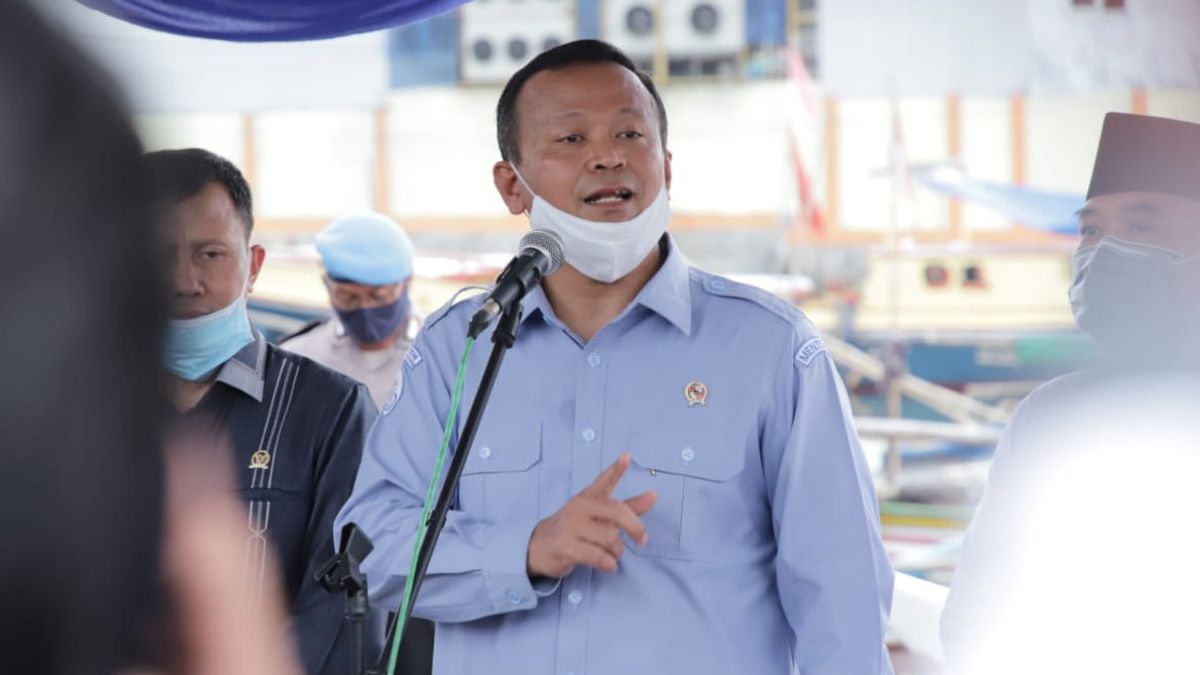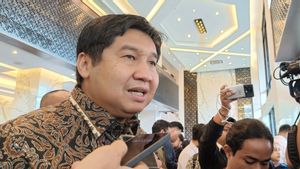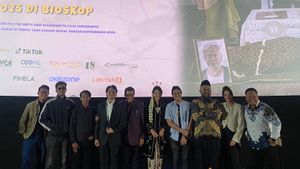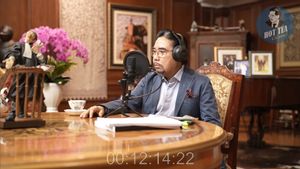JAKARTA - The former Minister of Maritime Affairs and Fisheries, Susi Pudjiastuti, via her personal Twitter account insinuated that the Ministry of Maritime Affairs and Fisheries under the leadership of Edhy Prabowo had allowed the export of lobster seeds. What used to be during Susi's leadership was strictly prohibited.
Susi revealed the list of companies that have obtained the permit to catch lobster seeds from the KKP. From the data revealed by Susi, there are 26 companies that have obtained permits.
"And exports to the 26 companies above. Incredible! What is the justification that gives them these privileged rights? Who are they? What? What? What? Can DJPT explain to the public clearly?" wrote Susi on her Twitter account.
Regarding this, KKP Minister Edhy Prabowo spoke up. According to him, the data is very transparent and has been validated by the permit of the Coordinating Minister for Maritime Affairs and Investment Luhut Binsar Panjaitan.
"It has received approval from Coordinating Minister Luhut and currently the lobster seed export policy is just waiting for the President's blessing," said Edhy, in Jakarta, Thursday, July 2.
Edhy explained, as the regulator, his party had also reported various technical matters regarding the implementation of the opening of the lobster seed export regulations and the regulations were clear.
Furthermore, he said, the regulation was contained in the revised Regulation of the Minister of Marine Affairs and Fisheries Number 56 / Permen-KP / 2016 concerning the Prohibition of Catching and / or Exporting Lobster (Panulirus spp), Crab (Scylla spp), and Ranjungan (Portunus spp) from Territory of the Republic of Indonesia.
In addition, Edhy also emphasized that the 26 lobster seed exporters mentioned by Susi had gone through various stages of process and met the requirements according to the regulations in force at the KKP.
"Moreover, the export company data is also not confidential data because it can be asked directly to the Ministry of Marine Affairs and Fisheries," he said.
Previously, the Director General of Capture Fisheries (DJPT) M. Zulficar Mochtar also confirmed that the KKP had allowed the 26 companies referred to as Susi Pudjiastuti. In fact, there are 29 companies that are allowed.
Furthermore, Zulficar said that these companies were potential exporters who had been screened and targeted by a team formed by the KKP out of 100 requests.
"Yes, that's right. Not an export permit but a determination of potential exporters. There are about 100 applications that have entered. After being reviewed and checked by a team formed by the KKP, according to the criteria and mechanisms compiled and contained in the KKP Technical Guidelines," said Zulficar.
As a potential exporter, explained Zulficar, the company must meet the criteria stipulated in the DJPT Decree Number 48 of 2020 concerning Technical Guidelines (Juknis) for Management of Clear Lobster (Puerulus) Seeds in the WPP-NRI Area.
"To carry out exports, there are stages and criteria that must be fulfilled by prospective exporters, including being proven to have carried out cultivation and restocking," he said.
Remove the ban on exporting lobster seedsAs is known, in early May the Minister of Marine Affairs and Fisheries Edhy Prabowo officially lifted the ban on lobster seed exports. The revocation was marked by the issuance of Permen KP No.12 of 2020 concerning the Management of Lobster (Panulirus spp), Crab (Scylla spp), and crab (Portunus spp), in the territory of the Republic of Indonesia.
The exportation of lobster seeds was also permitted at the same time nullifying the ban on the export of lobster seeds in the Susi Pudjiastuti era. Edhy said the consideration of this rule was to maintain the sustainable availability of fishery resources, increase public welfare, equality in cultivation technology, develop investment and increase foreign exchange.
Edhy said, opening a structured lobster seed export tap will increase the added value of people whose lives depend on the sale of lobster seeds.
"The lobster problem is that the regulations we are evaluating did not just appear or just because of the needs of a minister. We conduct studies and research by existing experts. Either through studies, through public consultations," said Edhy.
The English, Chinese, Japanese, Arabic, and French versions are automatically generated by the AI. So there may still be inaccuracies in translating, please always see Indonesian as our main language. (system supported by DigitalSiber.id)













